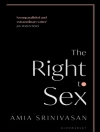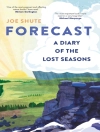The focus of the volume, in addition to standard features such as the bibliographical update on 15th-c. theater, is on late-medieval authors as literary critics.
Founded in 1977 as the publication organ for the Fifteenth-Century Symposium,
Fifteenth-Century Studies has appeared annually since then. It publishes essays on all aspects of life in the fifteenth century, including literature, drama, history, philosophy, art, music, religion, science, and ritual and custom. The editors strive to do justice to the most contested medieval century, a period that has long been the stepchild of research. The fifteenthcentury defies consensus on fundamental issues: some scholars dispute, in fact, whether it belonged to the middle ages at all, arguing that it was a period of transition, a passage to modern times. At issue, therefore, is the verytenor of an age that stood under the influence of Gutenberg, Columbus, the
Devotio Moderna, , and Humanism. Along with the standard updating of bibliography on 15th-c. theater, this volume is devoted to research on late-medieval authors as literary critics. Thus, for the historian as well as the writer of fiction, the tenuous limits between truth and fantasy (and the role of doubt) are investigated. If there are several eyewitness accounts of an event, which one can be trusted? Medieval memorialists sometimes became advisors to princes and used a rhetoric of careful persuasion. Values such as chivalry, courtly love, and kingly self-representation come up for discussion here.Several essays ponder the structure of poetic forms and popular genres, and others consider more factual topics such as incunabula on medications, religious literature in the vernacular for everyday use, a student’s notebook on magic, and late medieval merchants, money, and trade.
Contributors: Edelgard Du Bruck, Karen Casebier, Emma J. Cayley, Albrecht Classen, Michael G. Cornelius, Jean Dufornet, Catherine Emerson, Leonardas V. Gerulaitis, Kenneth Hodges, Sharon M. Loewald, Luca Pierdominici, Michel J. Raby, Elizabeth I. Wade.
Edelgard E. Du Bruck is professor emerita in the Modern Languages Department at Marygrove College in Detroit; Barbara I. Gusick is professor emerita of English at Troy University-Dothan, Dothan, Alabama.
विषयसूची
History or Fiction? The Role of Doubt in Antoine de La Sale’s
Le Paradis de la royne Sibille – Karen Casebier
Drawing Conclusions: The Poetics of Closure in Alain Chartier’s Verse – Emma Cayley
Widows: Their Social and Moral Function According to Medieval German Literature, with Special Emphasis on Erhart Gross’s ‘Witwenbuch’on Erhart Gross’s ‘Witwenbuch’ – Albrecht Classen
Robert Henryson’s Pastoral Burlesque
Robene and Makyne (c. 1470) – Michael Cornelius
Grandeur et modernité de Philippe de Commynes (1447-1511) – Jean Dufournet
Who Witnessed and Narrated the
Banquet of the Pheasant (1454)? A Codicological Examination of the Account’s Five Versions – Catherine Emerson
Medications Recommended in Incunabula – Leonardas V. Gerulaitis
English Knights, French Books, and Malory’s Narrator – Kenneth Hodges
Die Bibel in der spätmittelalterrlichen religiösen Gebrauchsliteratur – Arnold Otto
Conter et juger dans les
Arrêts d’Amour de Martial d’Auvergne (c. 1460) – Luca Pierdominici
L’Argent: cette nouvelle merveille des merveilles dans la version en prose de la
Chanson d’Esclarmonde (1454) – Michel J. Raby
Jean de Francières, Artelouche de Alagona et leurs collègues: pour une étude des traités de fauconnerie français du XVe siècle – An Smets
Magic and Superstition in a Fifteenth-Century Student Notebook – Elizabeth Wade
लेखक के बारे में
ALBRECHT CLASSEN is University Distinguished Professor of German Studies at the University of Arizona; he received the title of Grand Knight Commander of the Most Noble Order of the Three Lions in 2017, in recognition of his outstanding service to German studies.












